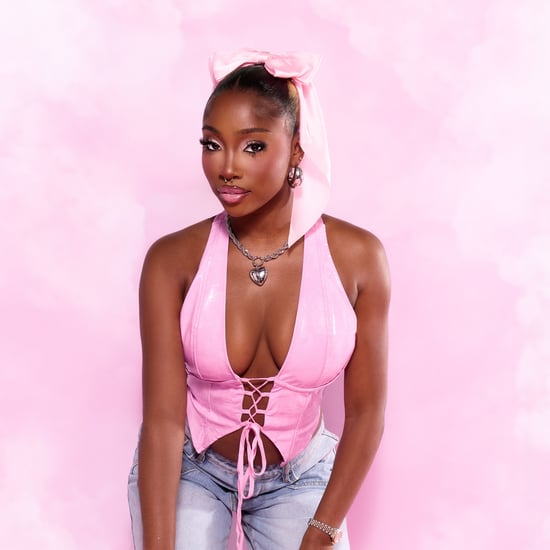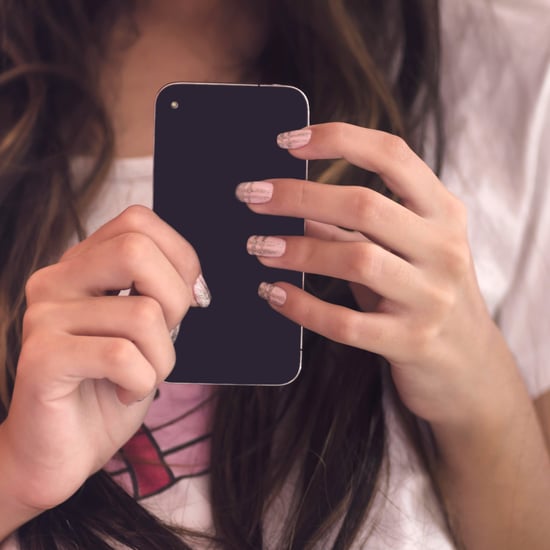Tips For Online Dating When You Have a Disability
8 Tips For Online Dating When You Have a Disability

Dating is a roller coaster. One minute you're feeling high on life, singing Beyoncé songs in the shower and overflowing with excitement, and the next minute you're feeling hopeless, confused, and rejected. While dating in general is complicated, it's especially challenging for those of us with disabilities. The typical worries most people have when putting themselves out there in the dating world like — Will they call? Why didn't they call? What if I never find anyone? — are compounded with anxiety upon deciding whether or not to show a cane or wheelchair in dating app photos, and when (and how) to tell a potential partner about their chronic condition.
As a person living with a slowly progressive neuromuscular condition, my disabilities are, for now, mostly invisible. If you met me, you wouldn't know that I can barely walk without the help of the leg braces I keep concealed underneath my clothing, or that I can't button a shirt or tie a pair of shoes to save my life – challenges I didn't have when I dated my now ex-husband at university. So when I got divorced in my early 40's and re-entered the dating world, I had major anxiety and believed that my disabilities would prevent me from ever finding love again. I worried that once a potential partner learned about my leg braces and inability to do things like rock climbing or skiing (clearly I've watched too many episodes of The Bachelor), they would be turned off and become deal-breakers.
After a solid year of putting myself out there and going on dates with people who looked nothing like their profile pictures (sigh), I learned a ton about what not to do, the red flags to look out for, and the inherent value I bring to a relationship regardless of my disabilities. I eventually found (and married) the perfect partner for me, and you can too! Here are my top tips for dating when you have a disability.
1. Highlight What Makes You Amazing
When online dating, don't post that amazing photo of yourself from eight years ago when you had your makeup professionally done for a friend's wedding, or say you love cooking when your oven is actually used as extra storage space. Your profile sets the tone for a relationship based on honesty and authenticity. Post current, casual photos that show off your best attributes, and highlight some of your real interests.
When it comes to the right time to disclose your disability, there are no rules. Since my disabilities are invisible and not something I even think about on a day-to-day basis, I didn't find it necessary to share this info with people I may never meet in person or even want a second date with if I had. But if you're someone who regularly uses a visible mobility device like a wheelchair or walker, you're better off including it in your photos for a couple of reasons:
- You'll be able to weed out all superficial and closed-minded people from the start and not waste your time.
- If you post photos of how you actually look, mobility device and all, there won't be any surprises when you meet and you'll have a far less awkward conversation.
- Your disability is nothing to be ashamed of. If you own it from the start and don't make it a big deal, your date won't focus on it either.
2. Be Proactive
OK, so you've been texting and emailing someone interesting and they suggest meeting in person for a date. In addition to the regular worries about what to wear and if you'll have anything to talk about, those of us with disabilities have valid concerns like, What if I can't hold my bladder? How will I explain why I can't walk up the stairs?
Most people with disabilities know that the seemingly smallest of details can negatively affect one's comfort level and experience. You can avoid the unexpected (mostly) by having a few favourite "go to" places to suggest when making plans to meet. Be proactive and do your homework before the date. Call ahead and ask for a table close to the entrance or toilet if needed. If you have fine motor difficulties like I do, try to avoid places like sushi restaurants where you'll feel the need to explain why you can't hold the chopsticks.
3. Be Real, Not Revealing
Try not to stress about the right time to tell your date about your chronic condition. It will most likely come up naturally as you chat and get to know each other. If using a dating app, you can put hints about your disability in the interests section so they can be used as natural conversation starters. For example, if you're involved with disability advocacy or belong to a special interest group related to your condition, your date may ask, "You said you're really involved with MS awareness . . . what's that about?" Try to keep your explanations to a minimum and use humour when possible. No date (or anyone, really) wants a lesson in genetics or the epidemiology of your disorder. Remember, talk less and listen more. Interested is interesting.
When couples who are newly dating see a potential future with one another, their conversations naturally evolve and become more intimate. This usually happens after a few dates when you've determined there's both chemistry and common values. This is the time to naturally talk about your chronic condition in a positive way, focusing more on how you overcome the challenges and try to live your best life despite them.
4. Remember Everyone Has Stuff!
One of the biggest takeaways I learned while dating was that everyone has something! Your something may be that you live with physical challenges, while their something may be that they struggle with severe social anxiety. When dating and looking for a potential lifelong partner, you're basically assessing the qualities you like about another person and determining if those qualities trump the things you don't.
Dating is a leap of faith for everyone. Some people will like you and some people won't, regardless of your disability. Know that you bring a ton to the table and that how you live with your disability will likely be one of the qualities that ultimately attracts the right person to you.
5. Be Confident (or Fake It)
Confidence is the sexiest thing you can wear and is the ultimate attractor. Hold your head high, make great eye contact, smile, and avoid apologising when you speak. And make sure to wear clothes that make you feel great. If you wear leg braces or have difficulty dressing, visit Trend-Able for adaptive fashion tips and inspiration.
Everyone feels insecure at times, especially when dating. The key is to squash those negative voices in your head telling you you're unattractive, unlovable, or defective, like you would an annoying bug buzzing around you. There are a ton of tips for improving your confidence, but for people with disabilities, the best way to become more confident and to ultimately find a great partner is to own your imperfections and rock them!
6. Don't Take It Personally
When they don't call after what you thought was an awesome date, it's easy to assume it's because of your disability. But there could be 101 other reasons for being ghosted - many of which probably have zero to do with you. Rejection sucks and not knowing what went wrong or why someone didn't feel the same spark you did is one of the hardest parts about dating. But try not to use your disability as a scapegoat. You have a ton to offer and if you keep putting yourself out there, the right person will eventually call back and not want to let you go.
7. Watch For Red Flags
When we find someone who likes us and seems somewhat normal, we tend to see that person through rose-coloured glasses and ignore some of the obvious red flags they exhibit. While people with disabilities shouldn't be shopping for a 2-in-1 life partner/caregiver, it's smart to steer clear from individuals who you wouldn't hire even as a temp. Here are a just a few of the red flags to watch out for when dating with a disability:
- Your date is impatient and/or rude to the wait staff.
- They walk ahead of you.
- They are overly concerned about appearances and what others think.
- After learning about your condition, they never ask questions and show no interest in learning about your challenges.
- They don't like to miss out on anything.
You want to date someone who already is the person who you want to date – not someone you're hoping they could become. Pay attention to both the positive and negative signs they're sending that could reveal their true colours.
8. Never Settle
Remember, you aren't just looking for someone who accepts you and your disability. You want someone who adores you, shares similar values, and who you feel great about yourself when you're around. Don't ever settle for less!






